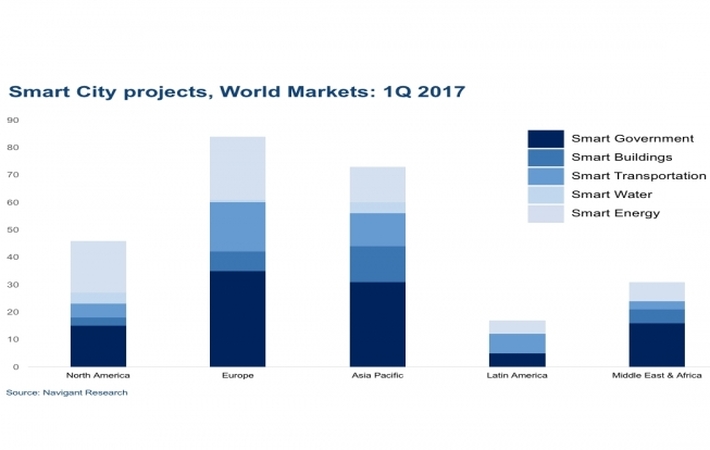
Published on 05/02/2017 | Market Sizing
Smart services drive city evolution
Cities are using IoT technologies to differentiate themselves in areas ranging from tourism to disaster response. PYMNTS published the Intelligence of Things Tracker in March to showcase 169 IoT companies leading the evolution of our cities, homes, stores, and roads.
Our favourites? We opt for convenience and security.
Five Elements Robotics created the Dash Robotic Shopping Cart. Simply input your shopping list and Dash will map the best route, guide you through the store, manage payment at the cart, deliver your bags to your car, and return itself to the store docking station.
ZingBox recently unveiled the IoT Guardian, which uses self-learning algorithms to determine your IoT device’s personality and enforce acceptable behavior. The self-learning approach enables it to build upon previous knowledge to discover, detect and defend critical IoT services and data with 99.9 percent accuracy.

IoT ONE Index: Smart cities of the world
IoT ONE features 66 case studies showcasing smart city solutions. The US, Europe and China are leading adoption but we are beginning to see interesting use cases around the world, from Cape Town's effort to reduce energy usage 37% by 2040 to Panama City’s efforts to be Latin America's first integrated smart city.
Feel free to contact us to feature your smart city IoT solutions or to learn more about companies that are innovating in the space.

Smart Government leads adoption
Smart transportation has grabbed the media spotlight but smart government initiatives are leading real implementations.
What drives smart government investments? According to Navigant analyst Christina Jung, "cities need higher levels of interdepartmental coordination, especially the inclusion of IT experts to future proof systems and architecture."
The success of future initiatives in energy, water, transportation and building initiatives will largely determined by the city government's digital enablement infrastructure.
